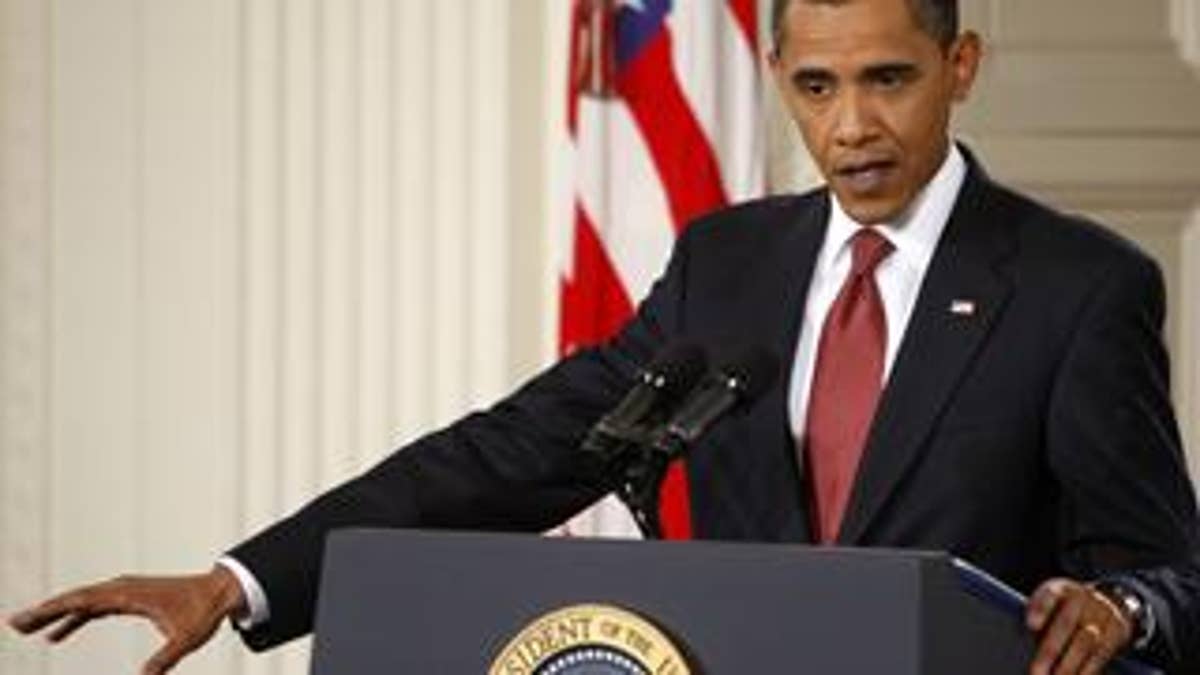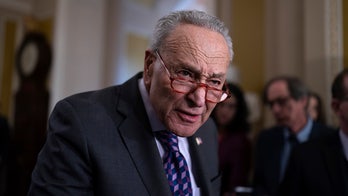
The first legislator to become president in nearly 50 years appears to be learning one of the first rules of management: You can set deadlines but other people have to meet them.
President Obama is struggling to hold lawmakers, as well as members of his administration, to key deadlines he's set during his first six months in office.
The hiccups reflect the complexity of the subjects at hand, be it health care reform or detainee policy. And they could mean that Obama needs to reassess his expectations.
"(The administration) is absolutely pressing the boundaries of the conceivable," said Brooks Holtom, associate professor of management at the Georgetown University School of Business.
Obama's most recent and pressing deadline trouble has come in the arena of health care reform. He wanted both the House and Senate to approve a bill by their August recess, so that they can hammer out a unified version after the break and get it to his desk.
"If you don't set deadlines in this town, things don't happen. The default position is inertia," Obama said Wednesday night at his news conference, defending his "rush" to reach a health care deal.
But Senate Majority Leader Harry Reid said Thursday his chamber won't vote until fall. And the House is having its own struggles.
The bill has passed through three committees, but it still sits before the House Energy and Commerce Committee and the Senate Finance Committee. On the House side, fiscally conservative "Blue Dog" Democrats have held up the bill over concerns about cost and other issues. In the more deliberative Senate, lawmakers say they need more time to work out the details.
Holtom said effective managers can inspire their staff to make extraordinary sacrifices to achieve ambitious goals, and tough deadlines are a part of that. But Obama, he said, is not dealing only with a close circle of middle-managers, and the scope of change he is trying to effect is not comparable to anything in corporate America.
"There is no one on the planet that has on his plate from a corporate perspective what the president has," he said. "If it were only up to the president and those he had hand-picked to lead these initiatives, it might even be possible, but in the context of managing not only his own staff but 535 (members of Congress) who he did not pick, who each have their own agenda ... it becomes a tremendous challenge."
The president seems to have tempered his approach slightly, stressing Wednesday that health care reform will happen "this year."
On several subjects, Obama has been forced to do the same with his own administration.
-- This week, officials said the task forces appointed to make recommendations on how terror suspects are detained and interrogated will need more time. A report on detention policy is expected to take another six months, while a report on interrogation policy is expected to take another two months.
Director of National Intelligence Dennis Blair said Wednesday that the delay was the right move.
"Although no one likes to miss a deadline, looking at it from the inside, it's really a mark of the seriousness ... with which we are taking it and of really taking the time to get the answer right," Blair said after an address to the U.S. Chamber of Commerce.
-- The administration is reportedly delaying the release of its midsummer budget update, usually set for release in mid-July, until mid-August. The White House, though, denied any suggestion that it was postponing the release, bound to show higher-than-projected unemployment, to avoid stirring dissent at a sensitive time for health care legislation.
-- The White House also has not released a list of $100 million in proposed budget cuts from Cabinet heads. The deadline for the cuts was Sunday, but the White House denied missing it. Aides said the cuts were submitted on time, but the White House is still reviewing them and they will be released shortly.
Obama met a key deadline early in his administration, when Congress narrowly met his demand to pass a $787 billion stimulus package by mid-February.
Historians have noted that Obama has an unheard of number of crises, both domestic and international, on his plate. He's trying to lift the country out of a deep recession while overhauling the financial sector to prevent a repeat decades down the road. He and his diplomats are trying stop a belligerent North Korea from developing its nuclear program. The administration is winding down the war in Iraq while winding up the war in Afghanistan. And pro-reform uprisings in Iran have presented a huge dilemma for an administration that has voiced support for the protesters but is hesitant to meddle too deeply in Iranian politics.
H1N1 flu hasn't helped, either.
On health care, Obama is no doubt cognizant of the fact that presidents often have a limited amount of time to spend their political capital and tap into the goodwill of Congress to achieve their agenda goals. "The stars are aligned," he said Wednesday, suggesting the window of opportunity could soon pass.
House Majority Leader Steny Hoyer, D-Md., told FOX News Wednesday that the "rush" is overstated.
"We've had over 80 hearings on health care reform over the last two years. This was debated very extensively, as I just pointed out to you, over the last 18 months," he said. "When you consider something from 1993 to today ... that's 16 years ago at least. We've been really working on this for six decades. It's not rushed."
House Majority Whip Jim Clyburn, D-S.C., said Thursday that the August deadline is still the goal for the House and that the recess might have to be postponed if necessary.
But the condensed timetable for finalizing legislation has made many lawmakers jittery.
Holtom said health care reform is a noble goal, but that the president might need to adjust the clock, given the other problems on the table.
"This is such a huge fundamental change that to have a full-court press on this, to have legislation ... completed before the recess is fraught with risk," he said.




